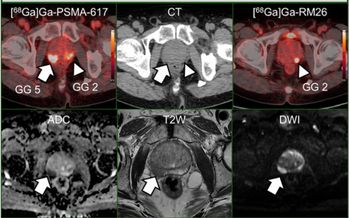
Report from ISET: First long-term data confirm cognitive benefit from carotid stenting
For the first time, long-term data show sustained cognitive improvement at one year in patients who have undergone carotid stenting, according to a report from the International Symposium on Endovascular Therapy in Miami this week.
For the first time, long-term data show sustained cognitive improvement at one year in patients who have undergone carotid stenting, according to a report from the International Symposium on Endovascular Therapy in Miami this week.
What's more interesting is that many asymptomatic patients in the study also showed improved cognitive functions following stenting. This has led investigators to question the very notion of labeling these patients asymptomatic.
"They had decreased cognition, and that should be considered a symptom of their disease," said Dr. Rod Raabe, an interventional radiologist with Inland Vascular Institute in Spokane.
This is important because the government currently reimburses only for symptomatic patients undergoing carotid stenting.
In other vascular territories, decreased blood flow manifests itself with physical symptoms such as acute chest pain, renal hypertension, or difficulty walking. The brain's pain in the case of asymptomatic people with significant carotid artery disease is more subtle. And society makes allowances for a certain cognitive decline occurring naturally with age.
"If they get better afterwards, then it's my contention they are symptomatic," Raabe told Diagnostic Imaging.
The study included 62 patients, half of whom were asymptomatic with at least 80% stenosis. Symptomatic patients had to have at least 70% stenosis. The average degree of stenosis was 90%, Raabe said.
Patients were evaluated with multiple cognitive tests over various time points. To date, 47 patients completed three months of follow-up, 41 six months, and 37 one year. Raabe and colleagues defined significant change as a difference in postprocedure neurocognitive performance of >0.5 standard deviation from pretreatment score.
Of the 37 patients who were followed for a year, 43% showed significant cognitive improvement, and 57% remained stable. One declined. MRI diffusion abnormalities occurred in 13 of 60 patients (two had pacemakers). No patient with a diffusion abnormality had a decline that was significant.
At the Society of Interventional Radiology meeting last year, Raabe presented results at six months' follow-up. At the time, colleagues, government officials, and vendors were skeptical that the improved cognition would carry through the year. They are now surprisingly impressed, Raabe said.
At the ISET meeting, an FDA official congratulated Raabe following the presentation, saying he never expected sustained cognitve improvement at one year. The official added that medicine needs this type of disease process understanding that leads to effective treatment.
Several similar studies reported recently have shown an increase in brain perfusion and a decrease in depresson following stenting. One from Germany, reported at the RSNA meeting in 2005, demonstrated increased cognition as well. In these studies, however, most of the cognitive tests were limited in scope and given only once. The current study included comprehensive cognitive testing at three different time periods up to a year, making it unique, Raabe said.
He noted that a meta-analysis of 28 studies involving patients who underwent carotid artery endarterectomy found more than 16 studies showing cognitive improvement following surgery, while 12 showed stability.
"The definition of symptomatic carotid stenosis may need to be redefined in the future to include functional deficits," Raabe concluded. "Perhaps potential neurocognitive improvement will be considered in carotid stenosis treatment."
He and colleagues have received letters from patients and their families expressing joy. Some patients have left nursing facilities to go home, others have resumed volunteer work, and at least one has begun winning bridge tournaments again.
For more information from the Diagnostic Imaging archives:
Newsletter
Stay at the forefront of radiology with the Diagnostic Imaging newsletter, delivering the latest news, clinical insights, and imaging advancements for today’s radiologists.













